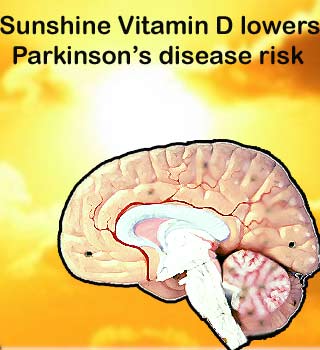
A study by researchers at the Emory University School of Medicine in Atlanta, Georgia shows that Parkinson’s disease may have a significant association with lack of vitamin D. Parkinson’s is a disease that is known to cause movement disorders nerve cells in the brain are affected. Its symptoms include tremor, stiffness and slowness of movement.
“We found that vitamin D insufficiency may have a unique association with Parkinson’s which is intriguing and warrants further investigationâ€, remarked study author Marian Evatt.
The research included an examination of elderly people with Parkinson’s or Alzheimer’s disease. Researchers found that the people afflicted with the condition also had insufficient levels of vitamin D as against their healthy counterparts of the same age. Specifically more than half Parkinson’s patients and nearly 41% of those with Alzheimer’s disease had low levels of vitamin D. On the contrary just a handful of elderly people had low vitamin D levels, about 36%.
Additionally on comparing more Parkinson’s and Alzheimer’s patients, those in the former group were clinically more deficient in vitamin D. Nearly 23% compared to 16% of patients and 10% patients with neither disorder.
Researchers suggest that the part of the brain that is most affected by Parkinson’s is apparently very sensitive to vitamin D and hence it may be vital for maintaining the health of this region. However they are not quite clear if a lack of the vitamin is a symptom of the disease or signifies the development or progression of the neurological disease.
Made in the body from exposure to sunlight, Vitamin D is also present in small amounts in certain foods like fish, cereals and fortified milk. To determine the aftermath on the development of Parkinson’s patients are now being given supplementary vitamin D in either standard doses or large doses. In the UK there are around 120,000 people with Parkinson’s and around 10,000 are diagnosed each year.
The study is published in the Archives of Neurology.
